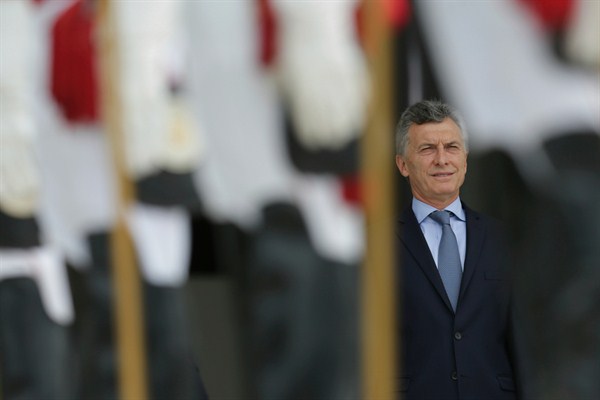In a decree late last month, Argentina’s president, Mauricio Macri, announced new immigration rules that risk repudiating the country’s history and could presage a painful break with its neighbors. The policy changes themselves are relatively minor, explicitly prohibiting the entry of any foreign national with past involvement in drug trafficking, money laundering, human trafficking and several other activities associated with organized crime. The new measures also expedite the deportation of all foreign-born residents implicated in similar crimes, whether these were committed in Argentina or in other countries. While the threshold for implication necessary for deportation remains uncertain, it can be triggered without a criminal conviction.
Macri’s administration telegraphed its intention to carry out an immigration crackdown for months prior to the order. In what might be seen as a gambit to test the level of opposition to a more punitive approach, in August it established a detention center for migrants in Buenos Aires. Reports began to surface soon after about Macri negotiating with opposition blocs on the issue. In December, the administration leaked a plan, much like the one that was later issued, to a prominent newspaper columnist. In January, Macri created a new agency, the National Border Commission, whose goal was to close the border to criminals.
All of this suggests not a radical departure, but a careful rollout gauged to appeal to the widest possible swath of Argentines. In a sense, those efforts have been successful. One pollster reported that 83 percent of respondents supported banning the entry of foreign nationals with criminal backgrounds, while 88 percent favored expedited deportation for the same group. One major opposition figure—Sergio Massa, Macri’s 2015 presidential rival—and Argentina’s influential, center-right newspaper giants have also signaled their support.

